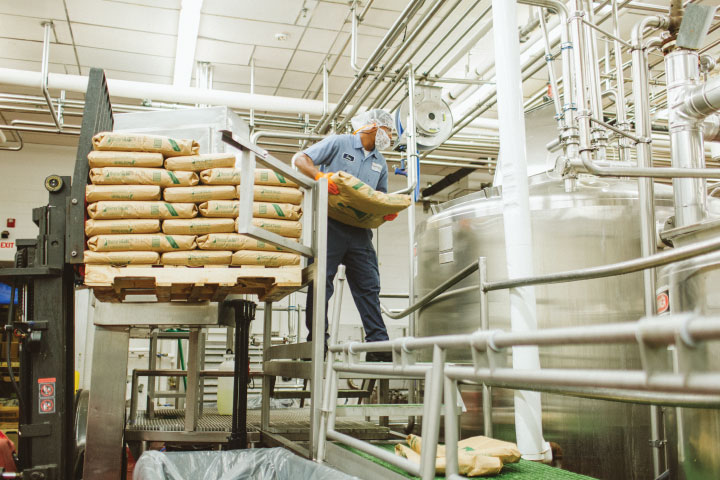Introduction
Private label specialized foods have actually obtained tremendous appeal recently. With customers looking for distinct and tailored food alternatives, private label food have actually come to be a go-to choice for several. In this write-up, we will certainly explore the complex process of private label food manufacturing, discovering the actions included and the principals in the industry.
The Increase of Private Label Food Manufacturers in Australia
Australia has seen a substantial surge in private label food manufacturers. With customers becoming a lot more mindful concerning their nutritional choices and demanding high-grade items, private label food production has actually become a rewarding organization opportunity. These producers satisfy various segments, including exclusive tag cheese, junk food producers, and more.
Understanding Private Label Food Manufacturing
Private label food production includes creating and producing foodstuff for sellers or organizations that after that market these products under their own brand. This process allows retailers to offer distinct offerings to their consumers without investing heavily in research and development or manufacturing infrastructure.
Key Steps Associated with Private Label Food Manufacturing
Step 1: Item Development and Customization
Private label food producers work carefully with merchants to recognize their needs and create personalized items. This action includes conceptualizing sessions, market research, and recipe formula. Personal tag specialty foods are made to deal with certain customer preferences and dietary needs.
Step 2: Sourcing Ingredients
Once the product requirements are completed, private label food producers resource high-grade components from relied on suppliers. They make sure that all active ingredients fulfill rigid high quality standards and comply with guidelines established by relevant authorities.
Step 3: Production and Packaging
After acquiring the ingredients, private label food manufacturing begins. The production centers make use of state-of-the-art tools and adhere to rigorous health procedures to create risk-free and delicious food. Product packaging is additionally an important part of this step, making certain that the product remains fresh while appealing to consumers.
Step 4: Quality Control and Testing
Private label food producers conduct rigorous quality control checks at every stage of the manufacturing process. This consists of examining the components, keeping track of production lines, and performing sensory evaluations. These actions ensure that the end product meets the best quality standards.
Step 5: Labeling and Compliance
Once the items are produced and quality checked, private label food suppliers take care of labeling and compliance. They make sure that all details on the item tags is exact and abide by regulatory standards. This action is important to supply customers with transparent details concerning the product's materials and nutritional values.
Advantages of Private Label Food Manufacturing
Private label food production provides a number of benefits for both merchants and customers. Allow's check out a few of these benefits:
Customization: Merchants have the freedom to produce one-of-a-kind items customized to their target audience, allowing them to separate themselves from competitors.


Cost-effectiveness: Private label food manufacturers provide affordable remedies by eliminating the requirement for sellers to buy research study, growth, and production infrastructure.
Control over branding: Retailers can construct their brand name picture by advertising exclusive tag foods under their own name. This enables them to establish trust and loyalty amongst consumers.
Flexibility: Private label food production gives retailers with adaptability in terms of product offerings. They can easily adjust to altering customer trends and preferences.
Higher earnings margins: With decreased production expenses, merchants can delight in greater earnings margins on private label food products contrasted to branded alternatives.
Quality assurance: Private label food suppliers focus on quality control procedures, ensuring that retailers get consistent and top quality products for their customers.
FAQs about Private Label Food Manufacturing
Q1: What is the role of private label food manufacturers?
A1: Private label food makers play an important function in producing tailored foodstuff for merchants or organizations that market them under their very own brand name.
Q2: Exactly how does private label food production benefit retailers?
A2: Private label food production permits stores to provide one-of-a-kind items, develop their brand photo, and delight in greater profit margins contrasted to branded alternatives.
Q3: Can private label food makers satisfy certain dietary preferences?
A3: Yes, private label food makers can establish products tailored to details dietary requirements and preferences, consisting of gluten-free, vegan, or natural options.
Q4: Exist any type of regulations regulating private label food manufacturing?
A4: Yes, private label food manufacturers should follow regulations set by pertinent authorities pertaining to component sourcing, labeling, and high quality control.
Q5: Can private label food makers manage large production?
A5: Yes, private label food manufacturers have the abilities to manage both small-scale and massive production based upon the retailer's requirements.
Q6: Just how can sellers make certain the top quality of private label food products?
A6: Retailers should collaborate with credible private label food makers who prioritize strict quality control steps and have a record of supplying extraordinary products.
Conclusion
Private tag food manufacturing uses a world of chances for sellers private label food manufacturer seeking to give distinct and personalized offerings to their customers. With a structured procedure involving product advancement, component sourcing, manufacturing, product packaging, and quality control, private tag specialized foods have actually acquired enormous appeal. By partnering with reputable private label food manufacturers in Australia or any kind of various other region, stores can establish their brand name identification while appreciating cost-effectiveness and versatility in their product offerings. So why wait? Study the exciting globe of personal tag foods today!